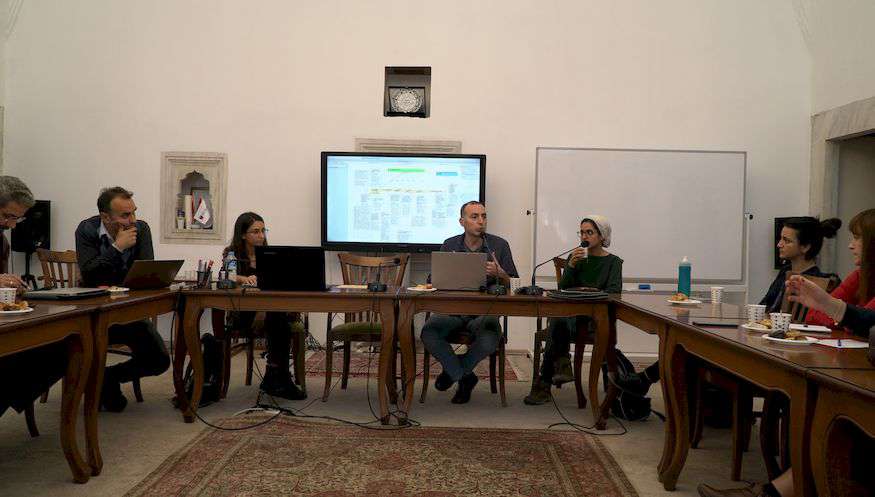


After the presentations, the initial findings were discussed. The event was held on Tuesday, November 5, 2019 at the Salis Madrasah in Süleymaniye Campus. In the workshop, the project leader Dr. Kurtuluş Cengiz gave information about the purpose, scope and methodology of the project and the dynamics of participating in spiritual movements. Cengiz said that in recent years, Turkey has observed an increase of people who are turning from mainstream religiosity to spiritual quests. Among these spiritual quests are activities in different areas of necromancy, astrology and yoga and other areas, according to Cengiz. He added that they focus on individual tendencies in their research project. Cengiz stated that these spiritual tendencies are seen in the metropolitan cities, according to his own research, they are in Istanbul, Ankara, Izmir and Konya, as well as the coastline extending from Muğla to Çanakkale. He said that they had interviewed close to 80 people who had been interested in spirituality for at least three years, even had it as a profession. “They are mostly white-collar workers, professional careers owners, well-educated, middle-class and belonging to secular circles, and they are women in general. They are also not involved in organized political struggle,” clarified Cengiz.
Noting that the past of such modern spiritual tendencies dates back to World War II, Cengiz mentioned that they were actually part of a major religious debate, and there was a wide literature indicates that belief was not lost but changed its form. Accordingly, in spiritual movements unlike traditional religious life, individual practices gain intensity practices around themes such as holistic, balance, to be virtue and good human being, freedom, create his own living space. Due to the urbanization, professional life and loneliness brought by modern life, people with spiritual tendencies make choices, without allowing interference with their freedom areas, that they think will make their lives more meaningful. Stating that traumatic events were observed in many of the stories shared by the participants, or rather, they established their stories through traumas, Kurtuluş Cengiz said that they could not provide political ideologies besides traditional religious life to these people. “spirituality becomes a belief that meets the needs of the new middle classes,” Cengiz said.
One of the researchers of the project, Dr. Önder Küçükural gave a presentation on the “Relationship between Spiritual Movements and Sufism.” He said that Sufi symbols, mystic terms and concepts such as “Mevlana,” “Sufism,” “mysticism,” “Arabi,” “selfless,” “Rabita and bonding,” “superiority,” “ishq-heart-love,” are used extensively in the interviews with the participants in the places where spiritual quests are seen. “These people have an allergy to the institutionalized form of religion,” He added that these people saw a parallelism, even a similarity, between Sufism and their own spiritual understandings-doctrine-percepts. He said that the ideas and doctrines produced by famous gurus in the West are presented in a sense with the concept of Sufism. In the workshop, researchers Hande Gur and Fatemah Meshael gave, respectively, presentations on “Spiritual Masculinities,” “The Empowered Woman of Anatolia: Variety of Spiritual Paths.” Following the presentations in the workshop, the findings obtained and presented in the project were discussed
In the discussion, Director of Alliance of Civilizations (ACI), Vahdettin Işık, said that in the world and especially in Turkey for the last 300 years, there has been a mechanism that made the religious sphere a public focus. “With the loss of the foundation that allows the religious existence, which has been dragged into the crisis of public legitimacy with modernist politics, to maintain its own existence and to reproduce itself, the existing religious existence has been pushed into a situation that rendered it incapable of responding to the current developments. It is clear that secular lifestyles no longer attract people. We see that people trapped in these two areas, which are becoming more and more deformed by pushing each other. This will expose people to schizophrenic fluctuations,” added Işık. Conclusions of “Spiritual Quest in Turkey” research project are going to be published in details as soon as possible and the subject of the coming workshops will be announced